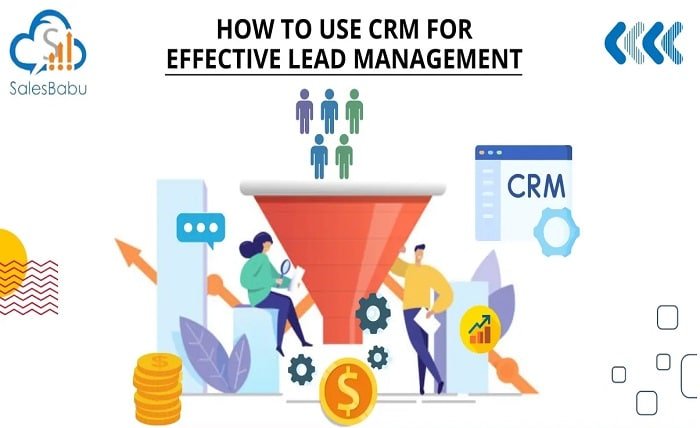How to Integrate Purchased Leads into Your CRM System

In the digital age of the world, every industry has had to move forward in order to beat out the competition. For real estate agents, investors and businesses overall, that came through the use of CRMs.
CRMs or customer relationship management systems are a one stop shop platform that help people conduct their business with ease. They help track important metrics, create better relationships with customers and help the business become more optimized.
Understanding a CRM system is important, and knowing how impactful it can be and how to do it is key for a business to grow successful.
The Importance of a CRM System in Real Estate
1. All in One Data Storage
A CRM system centralizes all client information, from client to details to property information, and any and all notes you have kept to help fulfill the deal.
2. Improved Lead Management
Managing leads and prioritizing them accurately is key for a higher conversion rate. A CRM ensures that no lead is overlooked and that follow-ups are timely and efficient.
3. Enhanced Customer Service
The best CRMs for real estate will allow you to properly communicate with your team and your clients through the platform itself, ensuring you have all the information on hand at all times, and that your clients are easily able to contact you.
4. Streamlined Workflow
CRMs allow for various tasks to be automated, such as your marketing channels to create automatic drip campaigns. Follow-ups become less tedious and better timed. You even have the ability to get customized KPI tracking to check into specific metrics and make better choices..
5. Data-Driven Insights
CRM systems provide valuable insights through analytics and reporting. Agents can track key performance metrics, understand lead conversion rates, and make data-driven decisions to improve their business.
Integrating Purchased Leads into Your CRM System
Step 1: Choose the Right CRM System
Importance:
Selecting a CRM system that aligns with your business needs and integrates well with your lead sources is crucial.
Tips:
- Compatibility: Ensure the CRM system is compatible with the platforms from which you purchase leads.
- Features: Look for features such as lead management, automated follow-ups, and reporting.
- Scalability: Choose a CRM that can grow with your business.
Example:
Popular CRM systems for real estate include Salesforce, HubSpot, Zoho CRM, and Real Geeks. These platforms offer robust features and integrations with various lead sources.
Step 2: Import Purchased Leads
Importance:
Importing purchased leads into your CRM system ensures that all your leads are centralized and easily accessible.
Tips:
- File Format: Ensure the lead data is in a compatible file format, such as CSV or Excel.
- Mapping Fields: Map the fields in your lead data to the corresponding fields in your CRM system to ensure accurate data import.
- Batch Import: Use the batch import feature to upload multiple leads at once, saving time and effort.
Example:
Most CRM systems have an import function where you can upload a CSV file containing your purchased leads. Ensure that fields like name, email, phone number, and lead source are correctly mapped.
Step 3: Automate Lead Assignment
Importance:
Automating lead assignment ensures that leads are distributed to the appropriate agents promptly, reducing response time and improving lead conversion rates.
Tips:
- Rules and Criteria: Set up rules based on criteria such as location, property type, or lead source to assign leads to the most suitable agents.
- Round-Robin: Use a round-robin assignment to distribute leads evenly among agents.
Example:
In Salesforce, you can set up lead assignment rules that automatically distribute leads based on predefined criteria, ensuring that each lead is handled by the right agent.
Step 4: Create Follow-Up Sequences
Importance:
In real estate, follow-up sequences help nurture leads by ensuring consistent and timely communication. This keeps leads engaged and increases the chances of conversion.
Tips:
- Automated Emails: Set up automated email sequences to send personalized messages at regular intervals.
- Task Reminders: Use task reminders to prompt agents to follow up with leads via calls or meetings.
- Personalization: Personalize follow-up messages based on the lead’s preferences and interactions.
Example:
HubSpot allows you to create email workflows that send a series of automated emails to new leads. These emails can be personalized based on the lead’s behavior and interests.
Step 5: Track Lead Interaction and Engagement
Importance:
Tracking lead interaction and engagement helps you understand how leads are interacting with your content and where they are in the sales funnel.
Tips:
- Engagement Metrics: Monitor metrics such as email open rates, click-through rates, and website visits.
- Behavior Tracking: Use your CRM’s tracking features to log interactions such as phone calls, emails, and meetings.
- Lead Scoring: Implement lead scoring to prioritize leads based on their engagement level and likelihood to convert.
Example:
Zoho CRM provides detailed analytics and engagement tracking, allowing you to see which leads are most active and engaged. This helps prioritize follow-ups and tailor your approach.
Step 6: Analyze and Optimize
Importance:
Regular analysis and optimization of your lead management process through reports in real estate, help improve efficiency and effectiveness, leading to higher conversion rates.
Tips:
- Performance Reports: Generate reports to track key metrics such as lead conversion rates, response times, and agent performance.
- Identify Bottlenecks: Identify any bottlenecks or areas where leads are dropping off and make necessary adjustments.
- Continuous Improvement: Use insights from your CRM to continuously refine your lead management and follow-up strategies.
Example:
Real Geeks offers comprehensive reporting tools that allow you to analyze the performance of your lead generation and management efforts. Use these insights to make data-driven improvements.
Conclusion
Integrating purchased leads into your CRM system is crucial for maximizing their potential and improving your real estate business’s efficiency and effectiveness. By choosing the right CRM, importing leads accurately, automating lead assignment, creating follow-up sequences, tracking engagement, and continuously analyzing performance, you can ensure that your lead management process is optimized for success.
A well-integrated CRM system not only helps manage leads more effectively but also enhances client relationships, boosts conversion rates, and drives business growth.
Investing time and effort into properly integrating and managing purchased leads in your CRM will ultimately lead to better outcomes and a more profitable real estate business.





